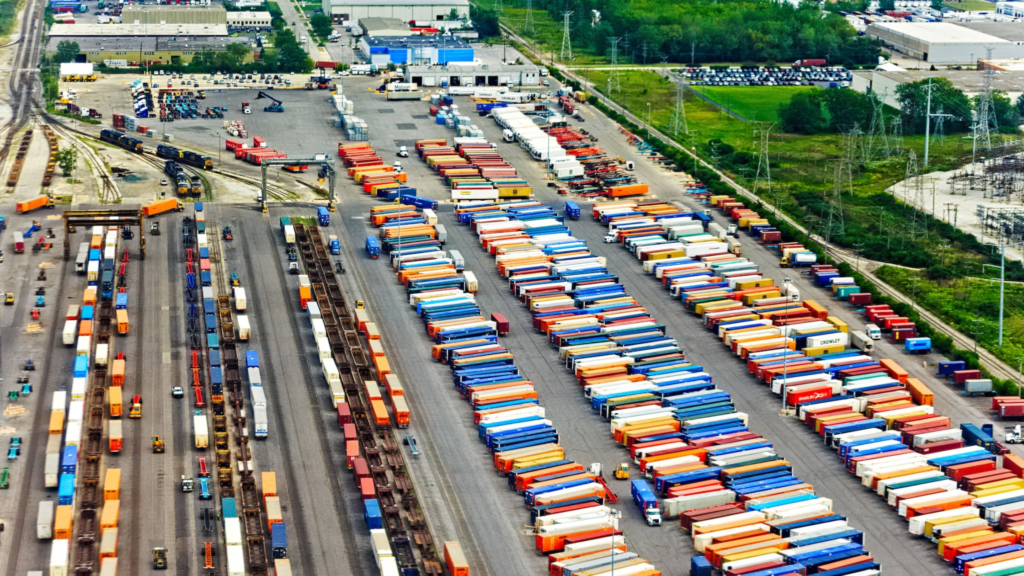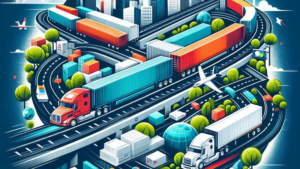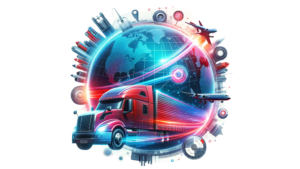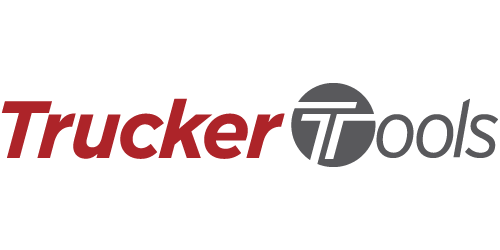In this guide to Intermodal transportation, we’ll explain everything you need to know!
Did you know that From 2021 to 2026, the intermodal transportation service could grow by USD 50.45 million? Furthermore, its growth will speed up at a CAGR of 6.38 percent.
When it comes to meeting their shipping needs, logistics managers have a variety of options to pick from. When weighing numerous methods, a merchant’s primary objective is to balance the lowest price and the best service. Intermodal transportation does this.
When is it appropriate to use intermodal transportation, and what is it? Read on to learn all about intermodal shipping.
What Is It?
What is intermodal transportation? Let’s dive in now!
Intermodal is when you use two or more freight transportation types to move goods from the shipper to the destination. For example, trucking and rail.
The intermodal shipment process starts with a truck moving a container to a rail. The intermodal containers are then moved onto a truck to finish the process. Here is an example of the three steps, each with its carrier.
Step One Transport By Road
An empty container is picked up from the origin rail ramp by a drayman or drayage carrier and delivered to the shipper. The container is then returned to the origin rail ramp when the dray is full.
Step Two Transport By Rail
The entire intermodal shipment is then transported by railroad. It’s picked up from the origin rail ramp to the departure rail ramp.
Step Three By Road
The destination drayage carrier picks up the intermodal container from the ramp. It s then delivered to the receiver.
Truckload vs Intermodal Transportation
So, why do shipping companies use intermodal transport? Let’s start with the most important advantages.
Fast Service
Using intermodal transportation allows a business to speed up product delivery. The shipper can choose the quickest route for lengthy journeys.
Moving items from one mode of transportation to another is also made simple using intermodal containers. In addition, delivery is speeded up because loading and unloading take less time.
Lower Costs
As a result of lower prices and cheaper shipping services, shippers can operate at lower costs. These prices are also more consistent. Therefore, the intermodal transfer is more affordable overall.
Using the intermodal train can also help you save money because it uses less fuel while traveling a long distance.
Increased Capacity
Because most sectors use intermodal transport, it’s easy to get scale economies and increase capacity. Companies can also fill up big containers by using reverse logistics.
Trackability
The goods are in containers for the whole trip. These containers are like warehouses, making the goods less likely to get lost or broken. As a result, nobody can access the goods during transportation.
Shipping in containers also reduces the likelihood of theft. In addition, the container is always trackable, unlike an overland shipment. This ensures the greatest level of security for the goods.
Sustainable and Environmentally Viable
The mode of transportation used significantly impacts the amount of CO2 emitted during the transport of goods.
Intermodal freight reduces carbon emissions by 65% compared to overland transport. It also reduces traffic congestion and road wear. In addition, intermodal transport emits less carbon footprint than overland truck transport, causing less environmental harm.
Load Up and Ship It!
Intermodal shipping is cost-effective and time-saving, especially when significant volumes and large distances are involved. Shippers can, however, find it daunting to manage and plan intermodal transportation.
Do you need help with your shipping services? Then connect with us. We have the expertise and an extensive carrier network to create customized shipping solutions for you!













